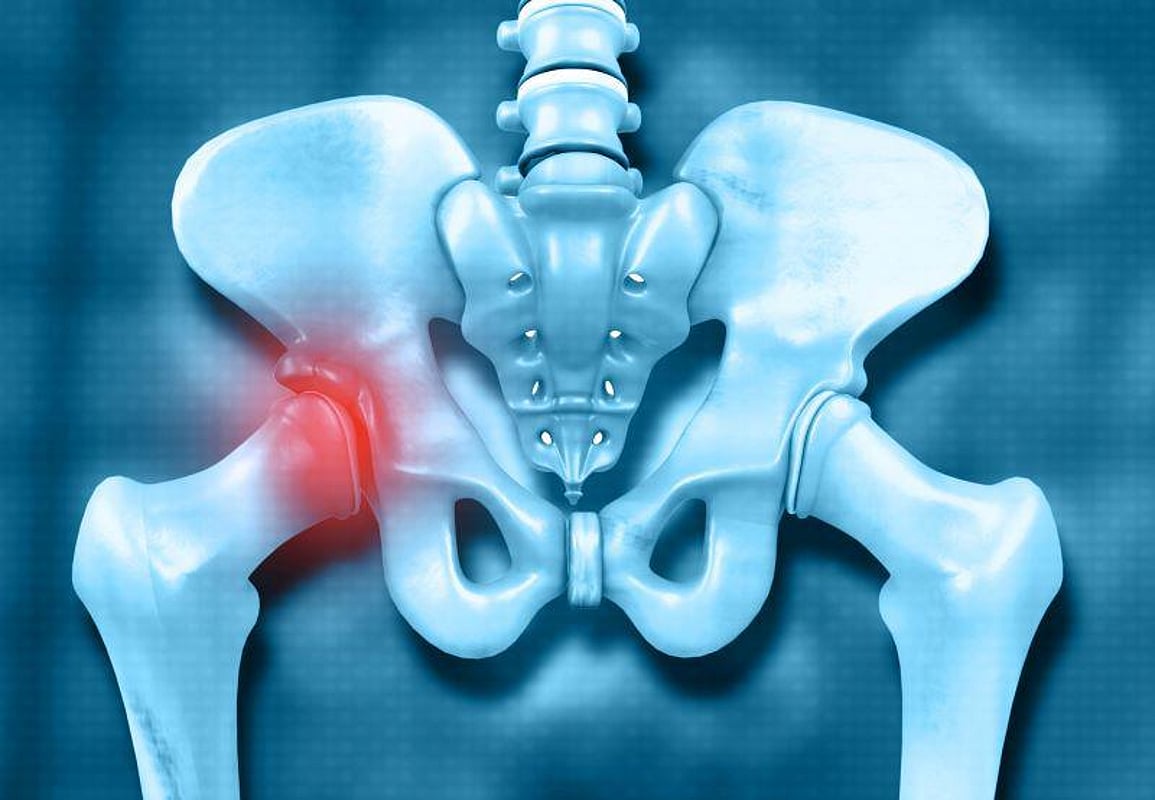Increased CXCL9 Level Linked to Increased Hip Fracture Risk in Men

THURSDAY, Aug. 25, 2022 (HealthDay News) -- Higher CXCL9 levels are associated with increased risk for hip fracture among men, but not women, according to a study published online July 10 in the Journal of Bone and Mineral Research.
Quang Tien Phan, Ph.D., from the National University of Singapore, and colleagues conducted a case-control study nested in the prospective, population-based Singapore Chinese Health Study involving 55 men and 119 women with incident hip fractures matched for age at recruitment, gender, and duration of blood storage to controls. Immunoassays were used to measure serum chemokines, CXCL9, and CXCL10.
The researchers found that in men, but not in women, increasing CXCL9 levels were associated with an increasing risk for hip fracture. The odds ratios in the highest quartile compared with the lowest quartile were 10.35 (95 percent confidence interval, 1.90 to 56.39) and 1.46 (95 percent confidence interval, 0.59 to 3.60) in men and women, respectively. The area under the receiver operating characteristic curve was improved from 0.65 to 0.74 for predictive utility of hip fractures in men, but not women, by adding CXCL9 to a prognostic model that already incorporated age and other risk factors. The association between CXCL10 and risk for hip fracture was not statistically significant for men or women.
"Our findings open the exciting possibility that early interventions targeting CXCL9 or CXCL9-CXCR3 signaling could be beneficial in preventing hip fractures in older men," a coauthor said in a statement.
Related Posts
Induction of Labor at 39 Weeks Benefits Perinatal Outcomes for Some
FRIDAY, July 21, 2023 (HealthDay News) -- Induction of labor (IOL) at 39 weeks...
Tras un brote infeccioso, los expertos ofrecen orientación sobre el uso seguro de las gotas para los ojos
LUNES, 6 de marzo de 2023 (HealthDay News) -- Un brote de unas infecciones...
‘Do Your Own Research’: Was It Dangerous Advice During the Pandemic?
THURSDAY, Aug. 17, 2023 (HealthDay News) -- The idea of “doing your own...
Working With AI Might Make for Lonely Workers
TUESDAY, June 13, 2023 (HealthDay News) -- A new study finds that people working...
